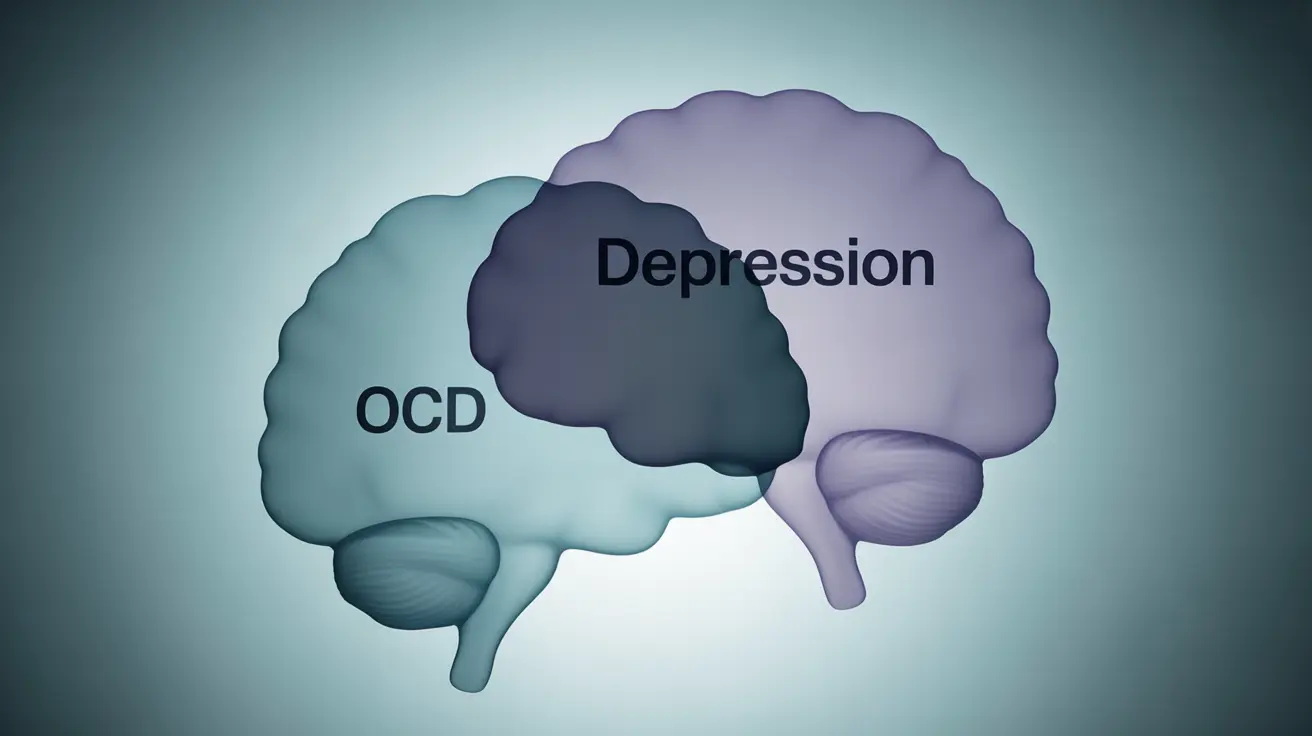Living with obsessive-compulsive disorder (OCD) can be challenging enough on its own, but many individuals face the additional burden of depression. The relationship between these two mental health conditions is complex and significant, affecting millions of people worldwide. Understanding how these conditions interact and influence each other is crucial for effective treatment and management.
This comprehensive guide explores the connection between OCD and depression, their shared symptoms, impact on daily life, and available treatment options. Whether you're personally affected or supporting someone who is, gaining insight into these co-occurring conditions can help guide better mental health decisions.
The Relationship Between OCD and Depression
OCD and depression frequently occur together, creating a challenging cycle that can significantly impact mental health. Research shows that people with OCD are at a higher risk of developing depression, often due to the overwhelming nature of obsessive thoughts and compulsive behaviors.
The constant struggle with intrusive thoughts and time-consuming rituals can lead to feelings of hopelessness and exhaustion, potentially triggering or worsening depressive symptoms. Understanding this connection is crucial for developing effective treatment strategies.
Recognizing the Signs and Symptoms
OCD Symptoms
Common signs of OCD include:
- Intrusive, unwanted thoughts or images
- Repetitive behaviors or mental acts
- Excessive cleaning or organizing
- Constant checking and rechecking
- Rigid routines and rituals
- Fear of contamination or harm
Depression Symptoms
Key indicators of depression include:
- Persistent sadness or emptiness
- Loss of interest in activities
- Changes in sleep patterns
- Fatigue and low energy
- Difficulty concentrating
- Changes in appetite
- Feelings of worthlessness
Impact on Daily Life and Relationships
The combination of OCD and depression can significantly affect various aspects of life, including work performance, social relationships, and self-care. Many individuals find themselves struggling to maintain regular routines or engage in social activities due to the overwhelming nature of both conditions.
Relationships often face particular challenges, as loved ones may struggle to understand the complexity of these co-occurring conditions. The time-consuming nature of OCD rituals, combined with depression's social withdrawal, can create barriers in maintaining healthy connections with others.
Treatment Approaches and Management Strategies
Professional Treatment Options
Several evidence-based treatments can help manage both conditions:
- Cognitive Behavioral Therapy (CBT)
- Exposure and Response Prevention (ERP)
- Selective Serotonin Reuptake Inhibitors (SSRIs)
- Mindfulness-based techniques
- Group therapy sessions
Self-Management Techniques
While professional treatment is essential, certain self-help strategies can support recovery:
- Maintaining a consistent daily routine
- Regular exercise and physical activity
- Healthy sleep habits
- Stress management techniques
- Building a support network
- Journaling and mood tracking
When to Seek Professional Help
It's crucial to seek professional help if symptoms of either condition begin to interfere with daily functioning or quality of life. Emergency care may be necessary if thoughts of self-harm or suicide arise, as these require immediate medical attention.
Frequently Asked Questions
1. How common is depression among people with obsessive-compulsive disorder (OCD)?
Depression is very common among individuals with OCD, with studies suggesting that up to 50% of people with OCD also experience significant depressive symptoms at some point in their lives.
2. What are the main differences and similarities between OCD and depression symptoms?
While both conditions can involve negative thoughts and impact daily functioning, OCD is characterized by specific intrusive thoughts and compulsive behaviors, while depression typically involves persistent sadness, loss of interest, and changes in sleep and appetite patterns.
3. How do OCD and depression affect daily functioning and relationships?
Both conditions can significantly impact daily activities, work performance, and relationships. OCD may lead to time-consuming rituals, while depression can cause social withdrawal and reduced motivation, creating challenges in maintaining relationships and completing daily tasks.
4. What treatment options are effective for managing both OCD and depression together?
Effective treatments often include a combination of medication (such as SSRIs) and therapy (particularly CBT and ERP). A comprehensive treatment plan typically addresses both conditions simultaneously for the best outcomes.
5. When should someone with OCD and depression seek professional help or emergency care?
Professional help should be sought when symptoms interfere with daily life or relationships. Emergency care is necessary if there are thoughts of self-harm or suicide, significant functional impairment, or severe worsening of symptoms.




